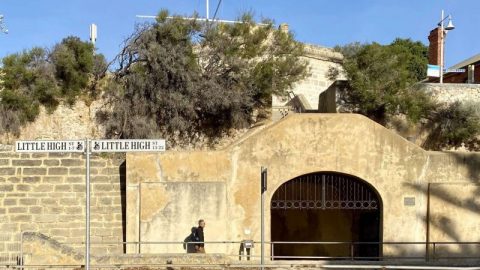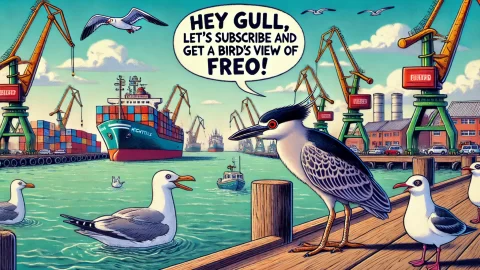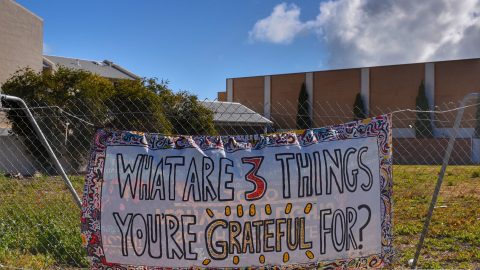A smooth pebble flying over the water, intermittently plunging and taking off again, is a well-chosen image for this Hungerford award-winning novel by Maria Papas, just published by Fremantle Press.
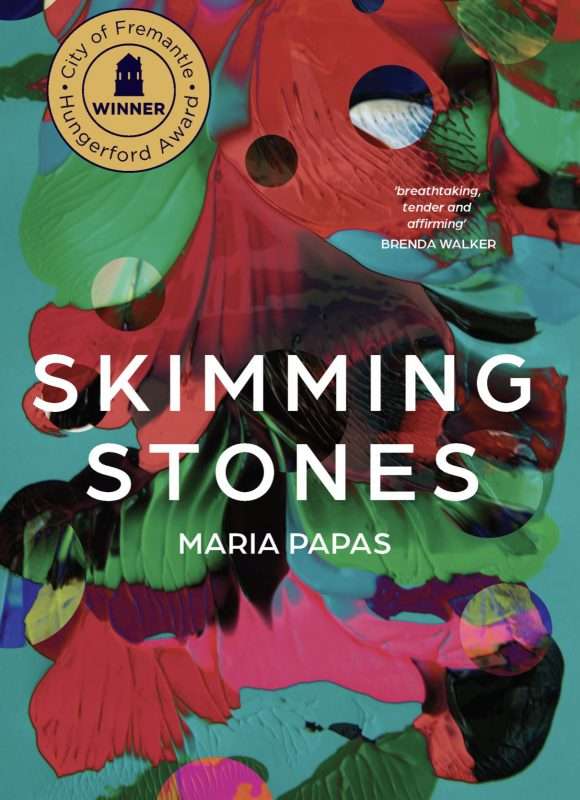
Well-chosen because the style of writing conveys a sense of uncertainty interspersed with moments of sure-footedness, a style well-suited to the novel’s focus on language, time and trauma.
The opening pages of the novel declares its interest in uncertainty in a way that delighted this reader as the casual references to this event and that, with no further explanation given, began to intrigue and entice. The excitement turns into tension and a little dread as one comes to realise that at the heart of this story is family and childhood trauma, in particular, the trauma of cancer. The uncertainty for the novel’s characters, therefore, is often bewilderment. Why us? What now? What next?
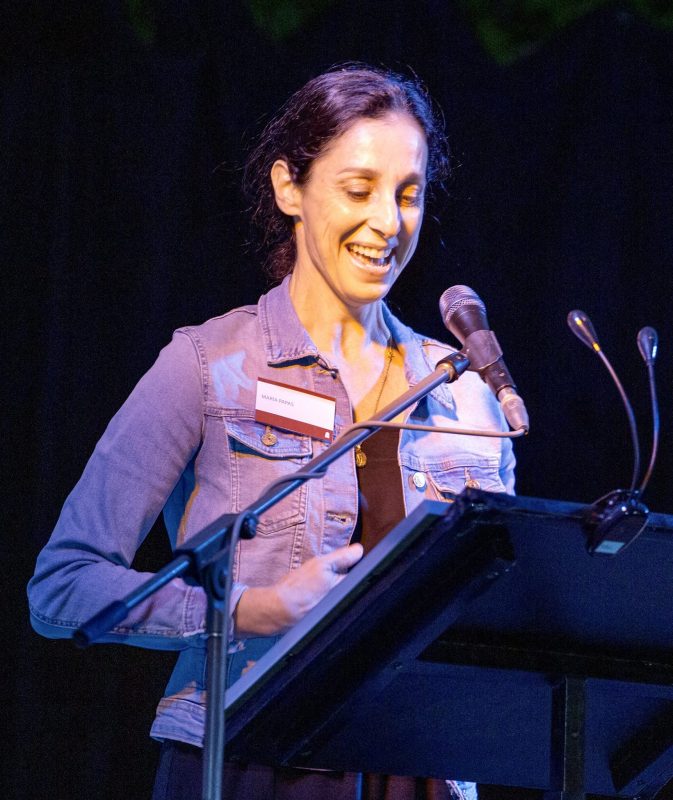
Maria Papas accepting the Hungerford Prize
Skimming stones is also an apt metaphor for the sense of time in the novel as both stillness (think of how time stands still in a crisis) and of deep plunges into recalled past trauma, initiated by current events. More comforting images also return to us often through our engagement with everyday objects (think Proust). Then there are our hopes and fears for the future. (Will past moments repeat? Should I be afraid? How many times will the stone skip?).
The nurse-narrator’s Greek mother thinks of time as chronological – past, present, future, neatly packaged — but, in the intensified circumstances of trauma, the experience of time can contain all of these: many moments, tensions and contradictions experienced all at once.
To semi-paraphrase the novel: such time is like a seeping hole, erupting forth. And so, the nurse-narrator observes a child’s and her family’s struggle with cancer as she relives her four-year-old sister’s leukaemia, while realising that she herself is pregnant. Past, present and future all seeping one into the other.
A friend recently observed that when an individual has cancer the entire family or household undergoes cancer too. The “we are pregnant” idea always seemed more hopeful than true to me, but that a whole household undergoes the crises of cancer seems terribly accurate.
As a book that focuses on the body’s experience of a contradictory world (think both pollution and a sky “awash with stars”), the novel is both edgy and tense, and observant and sensual.
This book may be traumatic for some to read yet, like all the best writers, Maria Papas takes you by the hand as you come to trust her and her narrator. As past, present and future blur, as one thing or one experience comes to stand in for another, and as tangible merges with intangible, the aura around the book itself and its reading intensifies.
This book is so much more than mere paper and words. Well done Maria and thank you.
* This book review was written by Christine Owen
PLEASE HELP US TO GROW FREMANTLE SHIPPING NEWS
FSN is a reader-supported, volunteer-assisted online magazine all about Fremantle. Thanks for helping to keep FSN keeping on!
And when you’ve finished reading Skimming Stones, or even before, catch up with our earlier article on Maria’s Hungerford win as well with as our editor, Michael Barker’s earlier podcast interview with Maria Papas about the themes and inspiration for the book.

